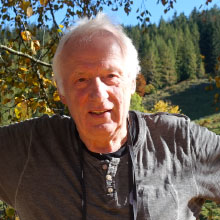
Günter Hennig is the head of the institute of applied research for social sciences. He teaches at the university of Potsdam. Since 2018, Hennig is project leader and instructor regarding pedagogical qualification in the ministry of education, youth and sport in Potsdam as well as the federal state of Brandenburg.
Learning to Live Together - Transfer of a Pedagogical Approach
Assuming the basic idea that conveying professional expertise also includes conveying social, cooperative, communicative, democratic and ethnic competencies, the concept of Learning to Live Together ("Gemeinsam Leben Lernen (GLL)") adds to the following questions:
- How can we succeed to connect social and cooperative learning in a way that synergies can be achieved in every school subject?
- How can disruptions and conflicts be handled meaningfully?
- How can the cooperation between teachers on a team level be supported and promoted?
- Which aspects can be drawn from this regarding the development and organization of schools?
Elements of social and cooperative learning are conveyed consecutively systematically added upon another and synergetically interlinked. Next to the simply subject- and education related conveyance and application, a main goal is the development and securing of a properly working class community. Elements of pedagogics of democracy hold a continuously accompanying role in the context of concrete togetherness and cooperation in the developing class community: taking responsibility, participating, structuring processes independently, or clarifying and developing solution strategies for occuring disruptions. Centrally, all participants are treating each other appreciatively and emphatically and thus a learning community is created through taking over mutual perspectives.
Practically the Communal Sense project creates and offers teaching material and seminars for teachers who are led by seminars to teach GLL to their students for one or two hours per week. While material for kindergardens and primary schools is already created, the development of material for secondary schools is planned, booklets for schools and parents will be handed out accompanyingly. In the course of the seminar, concrete suggestions will be made and it will also be collectively compiled how constructive cooperation can be shaped as easy and gainful for all participants. Mutual exchange and support as well as joint securing of the compiled material are in the foreground.
